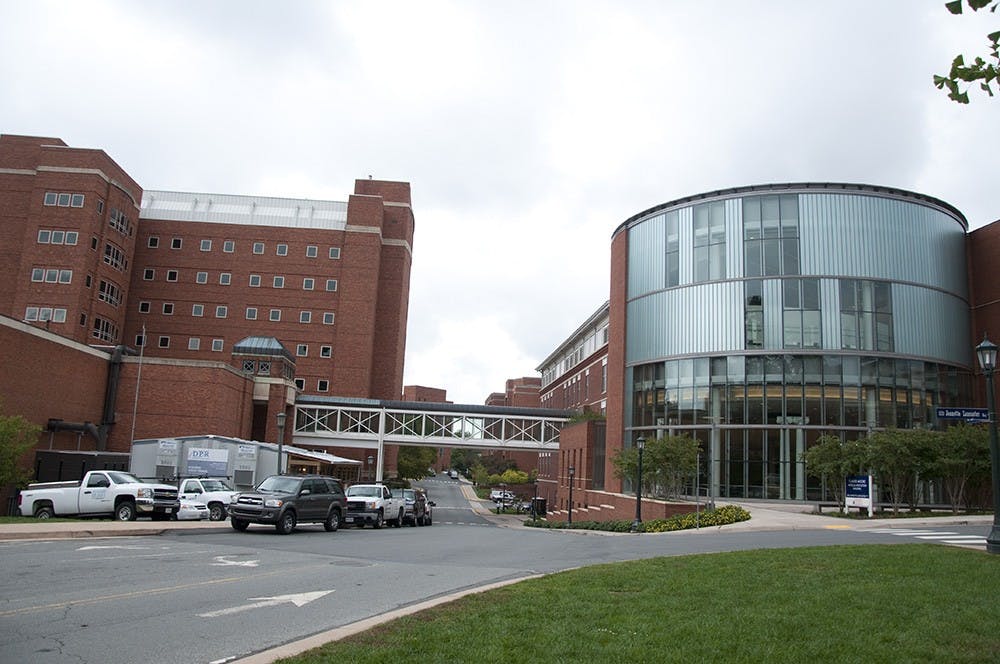The School of Medicine hosted a Medical Center Hour Tuesday that required two overflow rooms. Roughly 400 people came to listen to Dr. Ian Crozier speak about his experiences as both a doctor working to treat Ebola and an Ebola survivor.
“I don’t think anyone really thinks they’re going to get infected, and you have to face that when it actually happens,” Crozier said.
Crozier described his talk as the story of two bedsides — the one he tended to as physician in Kenema, Sierra Leone, and the one he spent months in as an Ebola patient at Emory University Hospital in Atlanta, Georgia.
During the Ebola outbreak, which peaked in late 2014, Crozier agreed to be sent by the World Health Organization to work at an Ebola Treatment Unit in Kenema. As one of just four physicians at his unit, he relied heavily on local healthcare providers, especially the unit’s head nurse, who eventually succumbed to Ebola after helping treat hundreds of patients.
Crozier contracted Ebola some time later and entered Emory University Hospital Sept. 9, 2014. He said he doesn’t remember much after that, as he spent much of his hospital stay unconscious. Even for the parts he does remember, he wasn’t quite coherent, Crozier said. He recalled that during his first week at Emory, he spoke to the nurses caring for him as if they were all working at the Kenema medical unit.
Crozier was careful to emphasize throughout his talk that he was just one of thousands who both suffered from and fought against Ebola. He said healthcare workers in Sierra Leone and other parts of West Africa who stayed in the wards showed “uncommon heroism.”
“Sometimes, I’m under the lights here, but there are hundreds and hundreds, thousands, who have been doing that, and particularly the West African healthcare workers,” Crozier said in an interview after the presentation. “Again, I want to remind you, over the course of this last 18 months, more than 500 of them have absorbed that risk with their lives.”
Dr. Costi Sifri, an epidemiologist for the University Health System, helped lead preparations to care for potential Ebola patients.
“We were asked by [Virginia Department of Health] and a consortium of Virginia hospitals if we wanted to take care of patients with Ebola, and we quickly and clearly said yes,” Sifri said.
Sifri also noted there is a lot of work that needs to be done in the wake of Ebola, and that the University is looking into what role it can play.
“I think, as Ian had demonstrated, everybody was learning about this, learning on the fly,” Sifri said.
If no cases crop up this week, Sierra Leone will be deemed to have “reached zero” — that is, no new cases of Ebola, Crozier said. However, he emphasized that is it is not just new cases that need attention.
“Now, as we get to zero, and as we think about staying at zero, we also have to realize there are 15 or 16,000 West African survivors that are battered and beleaguered, a remarkable group, and we must attend to them,” Crozier said.







